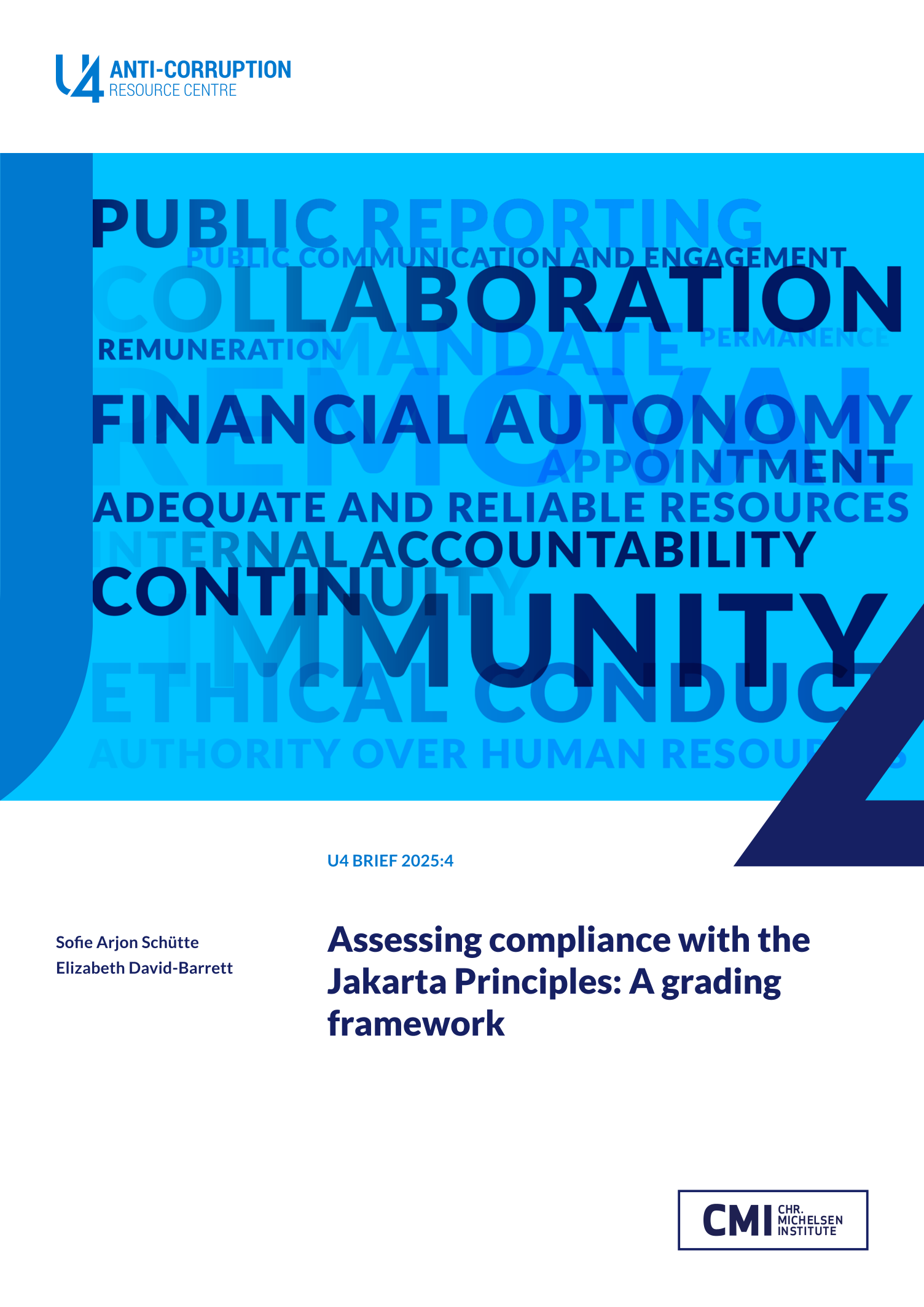Main points
- The 2012 Jakarta Principles identify features thought to be critical to ACA independence and effectiveness, but these are based on expert consensus rather than empirical validation. We have developed a framework for assessing ACA compliance with the principles as a first step towards more systematic research on the relationship between adherence to the principles and effectiveness.
- The framework scores agencies based on 50 graded questions across five themes (institution, leadership, human resources, financial resources, oversight) using a three-point scale to score partial or full compliance with the 16 Principles.
- Defining what counts as ‘adequate’ or ‘sufficient’, particularly in resource-related principles, is complex. Proxy indicators like ‘ACA budget as a percentage of national budget’ or ‘per capita expenditure’ are proposed, but these are inevitably imperfect.
- Data for the assessments could be collected in several ways, for example, through desk research, self-reporting in surveys or interviews with experts. Each method has different implications in terms of resource requirements and data validity. Our own pilots, based on desk research, had limitations because relevant information was not readily accessible in the public domain.
- Future research on effectiveness could take the form of large-n cross-sectional analysis of compliance levels and anti-corruption performance. However, longitudinal and qualitative case studies might allow for better understanding of causal links.


